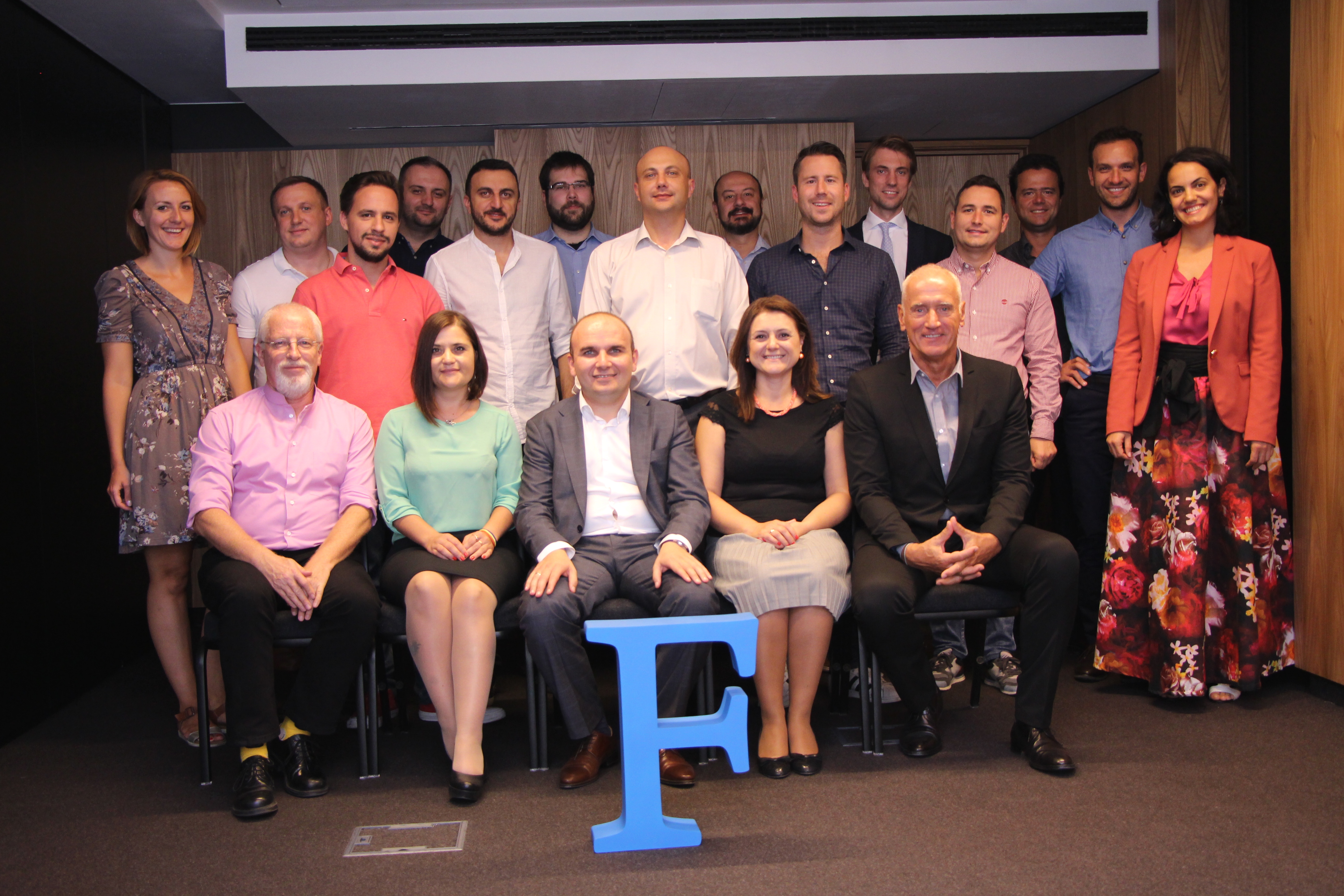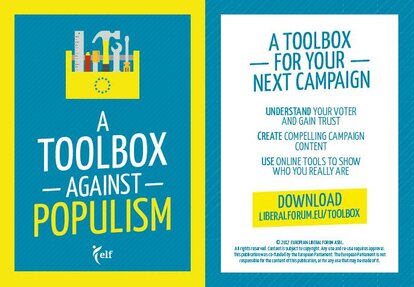In Need of a Toolbox Against Populism?

Group Photo "Cutting Through the Maze: Populism for Dummies"
What is populism? Who are the modern populists and what do they stand for? How liberal political parties can stand-up to populism and counter the populist message? What are the main ingredients of a successful political campaign? How to be popular without being a populist? These were the main issues discussed during the third FNF-ELF event from the project “We Want (you) to Stand up to Populism!”. The workshop “Cutting Through the Maze- Populism for Dummies” brought together in Sofia liberal strategists, campaigners and communication experts from FNF partner parties in East and Southeast Europe.

Download below “A Toolbox Against Populism”
You can download here the study on “A Toolbox Against Populism”, which is sponsored by the European Liberal Forum and conducted in cooperation between the two offices of Friedrich Naumann Foundation for Freedom for FNF East and Southeast Europe (ESEE) and FNF European Transatlantic Dialogue (ETAD). The study summarizes insights from a series of ELF-FNF events on what populism is and which tools against populism can be applied.
-
“A Toolbox Against Populism”- ELF-FNF Study
Speakers during the workshop in Sofia were: Mark Thiessen, former Digital Strategy Director of VVD (Netherlands), and founder of consultancy “Meute”; Radu Magdin, CEO of Romania-based consultancy “Smartlink Communications”; Máté Szalai, assistant lecturer at the Corvinus University of Budapest and external partner of the Hungarian think tank “Integrity Lab”. Watch below a series of videos in the playlist below on the understanding populism and crafting tools to counteract it.
As Radu Magdin pointed out during the seminar in Sofia, the challenges to liberal democracy today begin with the fact that the historical conditions, in which liberal democracy emerged as a solution, have changed. And for today's conditions, liberal democracy might be seen as a problem rather than a solution. Or rather, if liberal democracy today has problems that need solving, the historical conditions have changed and the political landscape is different as well. The worldwide instability and fear, sparked by the terrorist attacks, followed by the waves of immigrants and the economic hardships, some countries are facing, are the new variables, which the political leaders and policy makers have to keep in mind when shaping our future. This way, as we move forward, the situation is getting more and more complex. It is hard to say if leaders should sacrifice human rights and fundamental freedoms in order to reach their goals for efficiency. One of the major questions of today is whether liberal democracies allow for sustainable and inclusive rates of growth. More and more people seem to believe the opposite, which makes the dispossessed to prefer democracy to constitutional liberalism.
Máté Szalai explained what populism is and how it affects international relations and how populists use foreign policy as a tool. He also elaborated on three approaches to define populism: the binary approach, where the society is separated into the “pure people” and the corrupt elite. The second approach is labelling the ones that we do not agree with or dislike as populists. And the third definition is understanding populism as a phenomenon like the political utilization of popular dislike and mistrust in the state, especially after a period of bad governance.
The discussion among the participants has addressed the issues of populism as an ideology or a strategy. The conclusion was that populism is an ideology, which is put into a strategy. There was also some controversy about the concept that if populism is against the establishment and if populists are our opponents, does that mean that we are the establishment? Then came the question about good and bad populism and where the limit is. We use the same word for populism, but nowadays we face two types of populism. It was also mentioned that in some nations populism is not considered as bad. An example was given that one of the six pillars of Kemalism is indeed populism – giving the power to the people and protecting the interest of general public. It was agreed that the best environment for populism to thrive is hostility. It can be beneficial to populist parties when they are being attacked.
Based on the contributions from speakers, the discussion among the participants and the group activities there were outlined some general outcomes and recommendations.
Online campaigning is a very personal affair. Research shows that the best way to get someone’s trust and vote is to have had a conversation with him or her. Try to get people to engage with your message - which in turn also has to be personal - and try to get them into a conversation with you. Even if you do not agree with voters, their concerns and feelings are legitimate. The least you can do is listen to them, when they tell you what they feel. The worst you can do is to ignore them.
If a campaign is not real, it will not be successful. If a campaign is not sincere, people will not believe it. This also means: do not lie. Lying is the worst you can do, if you want to beat populists. They thrive on lying politicians. Do not let yourself be bullied by bad populism. If they lie, call them out. If they attack you, do not complain about how dishonest it is.
Liberals often discuss topics that are not necessarily on top of the priority lists of voters. Your voters deserve decent and good politicians. They deserve respect. Treat them accordingly. Do not lie. Do not cheat. Do not think that you are smarter than they are or that you know better. If you do something wrong, do not try to get out of it. Admit it sincerely.
Do not make too much noise without any signal. The best way to do so is being active not only during campaigns, but in general. Be pragmatic, short and emotional in your public speeches and media appearance.
Have a look at more photos from the workshop on our Facebook Fage www.facebook.com/FNFESEE below.